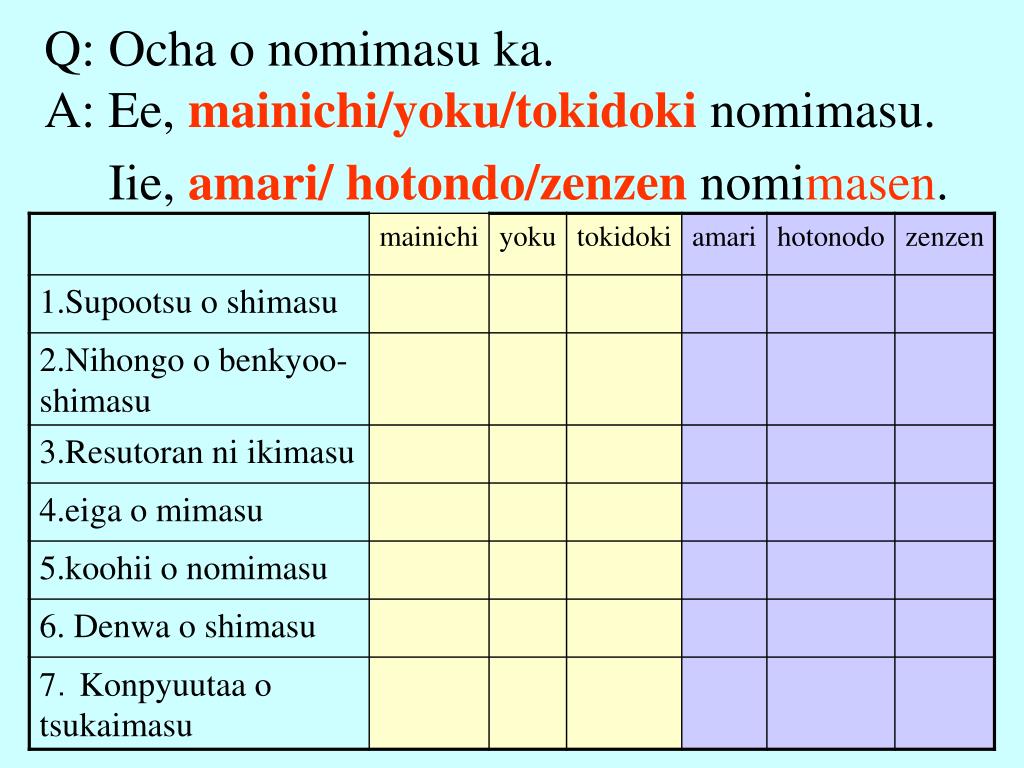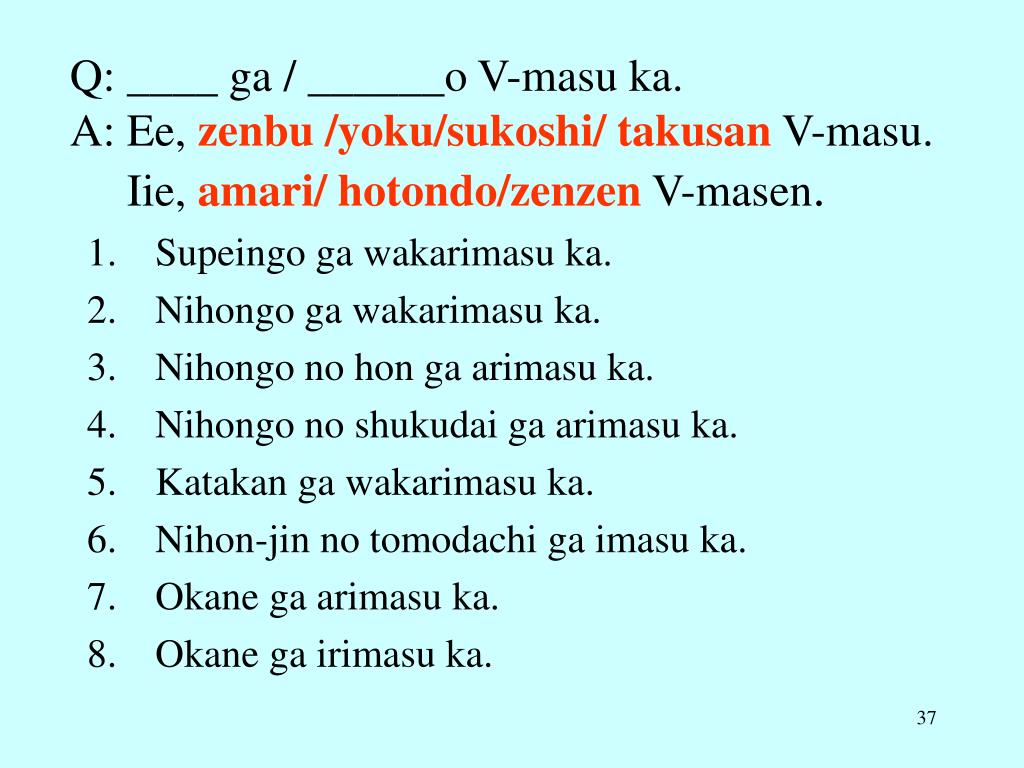

Kanojo wa amari shinsetsu ja arimasen deshita = She wasn't very nice In addition, just add the past negative tense of desu (ja nakatta or de wa arimasen deshita or ja arimasen deshita) to make it past tense negative. Just add the past tense form of desu (datta or deshita) to make it past tense. Once again, NA adjectives here will rely on da/desu to change tense, while I adjectives will transform: *'ii' becomes 'yokunai (desu)' or 'yoku arimasen'. Kono geemu wa tanoshiku arimasen = This game isn't funĪnata no joudan wa omoshirokunai = Your joke isn't funny Neko wa ureshikunai desu = It's an unhappy cat To make ~I adjectives negative in the polite present tense, there are two options:įor informal present tense, just change the 'i' into 'kunai'. These ones always change form themselves: the final 'i' will transform. Kanojo wa shinsetsu de wa arimasen = She isn't nice Kare no heya wa kirei ja nai = His room isn't clean Keep in mind that unlike the present positive discussed above, this form is not used directly before a noun:īecause these words do not change themselves, they rely on negative forms of da/desu: To form negative adjectives, follow the rules below. The adjective ii (good, okay, well) is irregular in most forms. "Amari" is used directly before the adjective when it's being used in the negative sense. "Totemo" or "taihen" are used directly before the adjective when it's being used in the positive sense. One last note - the word "very" is often used with adjectives. However, when an adjective directly precedes desu/da, the 'na' on NA adjectives is dropped: Or they can be used with the copula desu/da to describe the noun. In standard use, they can come right before the noun: (I find that for some reason there's a much wider, better selection of ~I adjectives!)

~NA adjectives (they end with 'na', which is usually written apart from the adjective itself)


 0 kommentar(er)
0 kommentar(er)
